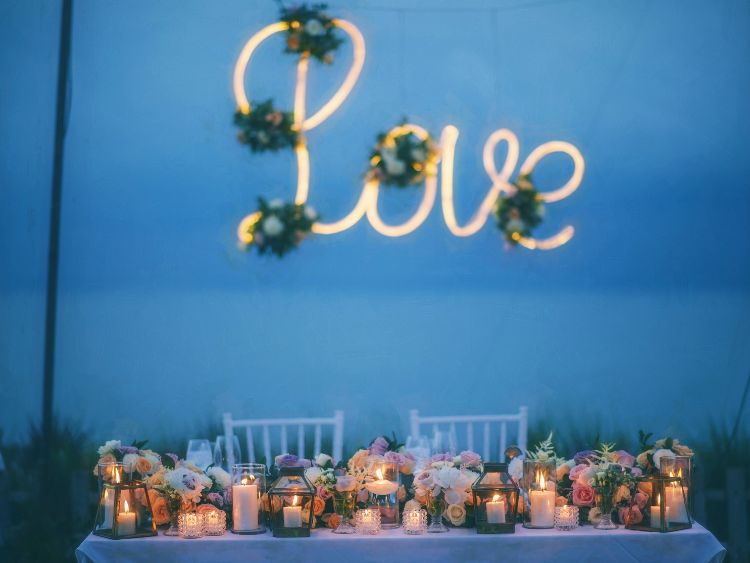Wedding planning is an exciting yet complex procedure that requires meticulous focus on every detail. If you are planning a significant event or a small gathering, knowing how long it takes to organize a wedding is essential to ensure smooth and seamless events. The timing of your wedding can vary based on various factors, such as the availability of venues, budget restrictions and individual preferences. Although some couples can get their wedding off the ground in a matter of months, some prefer an entire year of planning to avoid stress at the last minute. The timeframe is determined by the nature of the wedding and the options that will shape the day.
Setting the Foundation: Determining Your Timeline
Establishing realistic expectations is the first step to understanding how long it takes to organize a wedding. Specific venues and coveted vendors require reservations up to one year in advance in the event of peak wedding season. Booking the venue must be a priority if a specific date is needed. Furthermore, budgets play a crucial part in determining the timing. Couples looking to save for their wedding costs may require more time to plan, while those with financial plans will speed up the process.
Beyond logistics, the desire for guests’ experience can affect the timeframe. A destination-based wedding is one example. It requires more time to coordinate accommodation and travel arrangements. A wedding with elaborate decor or custom-made attire might require additional time for fittings and design. Realizing your expectations and the resources available will ensure a more straightforward planning process.
The Booking Phase: Securing Essential Vendors
After the timeline has been established, getting the key vendors in place is the next step. Famous photographers, florists, and caterers usually book months ahead. If you have an ideal vision, reaching out to vendors in advance can prevent frustration and provide room for changes. Furthermore, selecting an event planner can significantly influence the time it takes to organize your wedding. A professional can speed up the process by offering suggestions and handling the logistics that could delay the timeline.
The choice of attire is another essential element influencing the entire planning process. Wedding gowns that are custom-made and tailored suits may require a long time to design and modify. Wedding dresses for bridesmaids, groomsmen’s attire and other accessories must also be included in the plan to prevent last-minute changes. If you order online or in a store, ensuring adequate time for fittings and alterations avoids stress.
Guest Preparations: Invitations and RSVP Coordination
After the basic factors are established, paying attention to guests’ needs will enhance your overall enjoyment. Invitations should be issued in sufficient time to allow guests to RSVP, particularly for destination weddings or weddings that require travel. In general, wedding couples mail save-the-date cards up to 12 months ahead and then send formal invitations about a month before the wedding day.
Effectively managing RSVPs is key to a well-organized seating plan and catering number. If guests are travelling and need accommodation, giving them options and itinerary information will help them make the required arrangements. In addition, planning wedding-related events like bridal showers, engagement parties, or rehearsal dinners will add time to the overall plan and demand careful planning.
Finalizing the Details: Ensuring a Smooth Execution
As the wedding date draws near, arranging details is essential to ensure a smooth wedding. Meeting with vendors to discuss arrangements, arranging a tasting menu, and ensuring that decorations align with the desired look help to bring everything together. Trials of makeup and hair allow the opportunity to make any necessary adjustments to ensure a flawless style perfect for your wedding day.
Another important aspect is getting the marriage license, which must be secured within the required period by state or national rules. Furthermore, arranging transportation, preparing the wedding music and making a precise schedule for the reception and ceremony can help avoid surprises.
The weeks leading up to the wedding should be focused on relaxation and fun. Many couples decide to delegate last-minute tasks to friends or even wedding planners. This time is also the perfect time to draft vows, reminisce about the process, and plan the emotional meaning of the wedding.
Conclusion: Creating a Personalized Wedding Timeline
How long it takes to plan a wedding will ultimately depend on the couple’s personal preferences and vision and available resources. Although a long-term plan is standard for bigger weddings, a shorter period of time can be accomplished with planning and flexibility. Prioritizing the most important elements, securing vendors in advance, and maintaining an open line of communication will ensure a smooth and enjoyable trip towards the wedding altar. Whatever the date, it is about celebrating love in a meaningful and memorable way.







